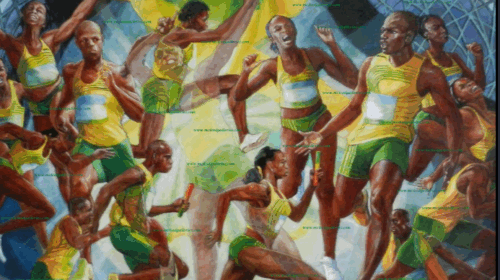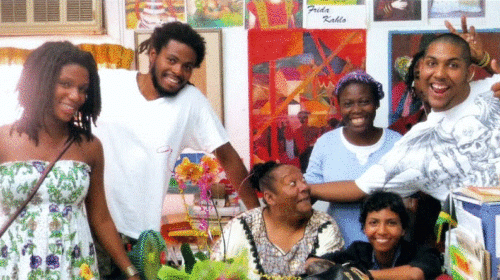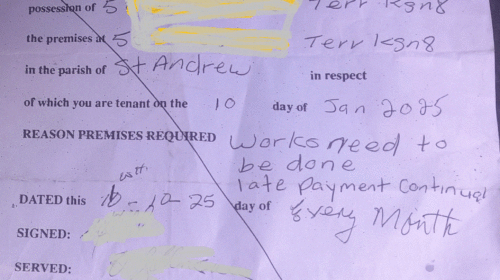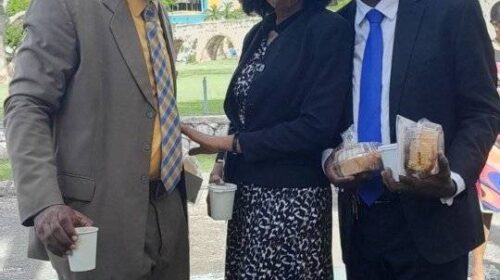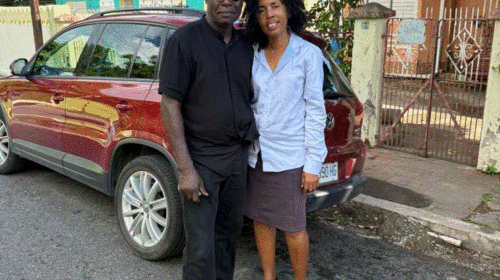[Early Childhood Commission moves to prepare more teachers ]
CONCERNED THAT some early-childhood practitioners are without the requisite qualifications, the Early Childhood Commission (ECC) has embarked on a strategy to train educators. Of the 8,181 early-childhood practitioners identified by the ECC, 7,312 teachers were confirmed with qualifications.
From this figure, only 22 per cent, or 1,673 people, are trained teachers, with this number represented at private preschool, kindergarten and infant schools. One thousand three hundred and fifty teachers, or 18.5 per cent, only have primary-school qualifications, while 320 or 4.4 per cent have secondary-school qualifications. One thousand and thirty-five, or 14.1 per cent of teachers, are trained at the diploma level, while 590 or eight per cent have bachelor’s degrees. Forty-eight, or 0.7 per cent of educators, are trained at the master’s level. Those teachers trained at the vocational level are 3,696, or 50.5 per cent. “Twenty-two per cent for trained teachers is too low. However, we are in the development stage and those teachers that are not qualified need to do so. We are moulding young minds and those that are imparting knowledge to them should be at a level to do so.” Professor Maureen Samms-Vaughan, chairman of the ECC, told The Gleaner recently.
Comprehensive strategy Samms-Vaughan said the statistics have led the commission to develop a comprehensive human-resource strategy to improve the proportion of trained teachers in the early-childhood sector. The ECC is also working with NCTVET/HEART Trust in the revision and development of the vocational programme in the early-childhood institutions. As a result of the low rate of teacher qualifications, preparation of teachers for early-childhood education is also being undertaken in selected teacher-training institutions where participants obtain a diploma. In addition, a Bachelor of Education in early-childhood education is being offered at one of the teachers’ colleges in association with the University of the West Indies.
“Teacher-training colleges are being overwhelmed with programmes for early childhood. Our children can’t wait that long, so that’s why we are working at the zone meetings with persons who are currently in the system, helping them to implement the curriculum. We are trying to get it right because the importance of early childhood to the primary and secondary level is critical,” Samms-Vaughan told The Gleaner recently.
Meanwhile, Samms-Vaughan, said the early-childhood curriculum has areas in it for develop-mental objectives, practitioner strategies, preparing for learning and areas that involve parents. “It is a requirement for schools to have a curriculum. Many schools did not have a curriculum. We provide it and it is a requirement for the schools to display the plans for the students so that the parents can see. We do not insist that our curriculum is used because there are schools that use other curriculums. But they should use a curriculum that is suitable for a student at the early-childhood level,” Samms-Vaughan said.
The ECC chairman said the commission through its development officers work with the teachers to help them to develop the plans for the children using the curriculum. As such, it is important that the teachers have mastery at the early-childhood level, including the implementation of the curriculum and administrative functions. “Our development officers are trained in these areas and develop templates. A particular template is not going to work everywhere all the time, so they are also trained to modify it for the schools,” Samms-Vaughan said. The ECC has also developed a booklet called the Money Management Guide for early-childhood institutions. Each early-childhood institution is given a booklet and training is provided in each zone. “Each school has a copy of the early-childhood curriculum free of cost. We put it in libraries so the parents can also see it.
The new curriculum is about child centredness that is from birth to three. Many countries do not have a birth-to-three curriculum, but it recognises the importance of working with those children rather than just cleaning and feeding them. There is too much brain development going on for us to do just that,” Samms-Vaughan said. During the ongoing development process, the standards document indicates that early-childhood practitioners should have at least level-one training which is provided by the National Council for Technical and Vocational Education and Training of the Heart Trust. This training, which is offered at different levels, leads to certification of the participants. “The single-greatest problem to achieving our education criteria is teacher qualification and teacher ratios,” Samms-Vaughan said.
(Source: Jamaica Gleaner, March 7, 2011 – by Keisha Hill)
Author Profile
- ... refers to representatives of entities such as embassies, entertainment industry, creative force whose submitted work gets published on this site. Views expressed here may not necessarily represent those of the owner of this site, but are being published in the interest of the wider public. Link me here
Latest entries
 AdvertorialFebruary 1, 2026Daily reads on www.antheamcgibbon.com as @ 1 February 2026
AdvertorialFebruary 1, 2026Daily reads on www.antheamcgibbon.com as @ 1 February 2026 AdvertorialJanuary 21, 2026Documents assistance
AdvertorialJanuary 21, 2026Documents assistance AdvertorialJanuary 1, 2026Daily reads on www.antheamcgibbon.com as @ 1 January 2026
AdvertorialJanuary 1, 2026Daily reads on www.antheamcgibbon.com as @ 1 January 2026 Raw and DirectDecember 21, 2025Use that rare energy in you
Raw and DirectDecember 21, 2025Use that rare energy in you



